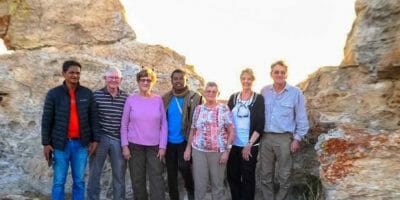Njava, a family group originally from Madagascar, became famous for his ability to merge harmoniously traditional Malagasy rhythms with modern influences, creating a unique style that has captivated international audiences.
The Beginnings of Njava
Founded by Monique Rasoanirina, known as “Monika Njava”, the group’s lead voice, and her siblings, Njava first captured attention on their native island. Their music is a celebration of Malagasy traditions, incorporating the rhythms of beko and of rijastyles specific to the Antandroy and Mahafaly peoples of the South, as well as the Betsileo of the highlands.
Breakthrough and International Recognition
In 1992, Njava’s unique talent was recognized worldwide when they won the Media Prize of RFI Discoveries competition. This victory marked the beginning of their international rise, leading to invitations to world-renowned festivals and their signing with Virgin Records for the album “Vetse”.
The “Vetse” Album and Its Impact
The album “Vetse” released in 1995, quickly became a international successthanks to its innovative blend of traditional and modern sounds. This flagship project not only broadens their audience but also values the cultural richness of Madagascar, highlighting instruments like the valiha and the marovany.
Musical Evolution and Various Projects
Over the years, Njava has continued to explore different musical genres, including Afro-pop and Afro-fusion, while remaining true to their roots. Their music, sung in Malagasy, French, and sometimes in English, addresses themes of social justiceof love and unity, resonating with a large global audience.
Cultural Impact and Heritage
Today, Njava doesn’t just perform on stage; they also organize music workshops for young musicians, passing on their knowledge and inspiring a new generation. The group has thus established a cultural bridge between Madagascar and whole worldenriching humanity with their vibrant art.
Njava continues to tour internationallycarrying the voice of Madagascar across the globe and proving that music is a universal language that can unite people, transcending geographic and cultural borders. Their musical heritage is an eloquent testimony to the profound impact that music can have as a force for change and communication.











